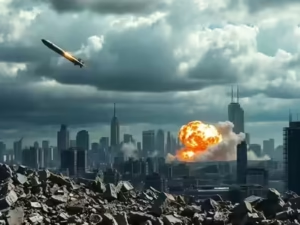introduction
President Donald Trump has expressed a desire to label the latest escalation of hostilities between Iran and Israel as the “12-Day War.”

However, it appears that his preference may not come to fruition. The ongoing conflict,
marked by intense military exchanges and geopolitical ramificationshas drawn significant international attention and scrutiny.
As the situation evolves, the implications of naming such a conflict could influence public perception and diplomatic relations,
making it a contentious issue. The complexities surrounding the conflict, including historical grievances and regional power dynamics,
suggest that a simple designation may not capture the full scope of the events unfolding in the Middle East.
The possibility of the current conflict being labeled as World War III appears increasingly remote, despite former President Trump’s warnings about such a scenario over the past decade.
This year, he even cautioned the Ukrainian leader that his actions could potentially ignite a global conflict.
Trump’s persistent rhetoric underscores his belief in the gravity of the situation, yet the complexities of international relations and the multitude of factors at play suggest that a full-scale world war is unlikely.
The geopolitical landscape is shaped by numerous alliances, economic considerations, and diplomatic efforts that often serve to mitigate the escalation of conflicts into broader wars.
David Sibley, a military historian affiliated with Cornell University and located in Washington, D.C.,
points out that there is no formal authority, whether at the national or international level, responsible for naming conventions.
Instead, the process is largely informal and relies on consensus among historians and various nations, although this agreement is not always universally recognized or adhered to.
This lack of a centralized naming body can lead to discrepancies and variations in terminology, reflecting the complexities of historical interpretation and the diverse perspectives of different countries.
sought insights from specialists in international relations and military history to gain a deeper understanding of current global events and the appropriate terminology to describe them.
The discussions highlighted the complexities of the international landscape, emphasizing the need for precise language that accurately reflects the nuances of ongoing conflicts and diplomatic efforts.
Experts underscored the importance of context in framing these issues, suggesting that a careful analysis of historical precedents and geopolitical dynamics is essential for conveying the realities of the situation.
Their perspectives aim to inform the public discourse and enhance comprehension of the intricate factors at play in today’s world.
The ’12-Day War’
Howard Stoffer, a professor at the University of New Haven in Connecticut, has characterized the recent hostilities between Iran and Israel as a significant milestone in the geopolitical landscape of the Middle East.
He draws parallels between this escalation and pivotal conflicts such as the Six-Day War of 1967 and the Yom Kippur War of 1973,
suggesting that the current situation could reshape regional dynamics in a manner similar to those historical events. Stoffer’s analysis implies that the implications of this conflict extend beyond immediate military engagements,
potentially influencing diplomatic relations, power balances, and the broader socio-political climate in the region for years to come.
Sibley noted that Trump’s proposed title could be seen as a reference to the events of 1967, during which Israel launched a preemptive airstrike that led to a decisive victory over neighboring Arab nations.
This military action not only solidified Israel’s political standing in the region but also resulted in significant territorial gains.
The aftermath of the conflict positioned Israel as a more formidable power, reshaping the geopolitical landscape and altering the dynamics of its relationships with surrounding countries.
Sibley expressed that such a development would undoubtedly resonate within Israel and across the broader Middle Eastern region.
He noted that the concept possesses a certain sharpness and appeal that could capture attention, making it intriguing to observe how it unfolds.
While he remains uncertain about its potential longevity, he suggested that there is a possibility it could gain traction and remain relevant in the discourse.